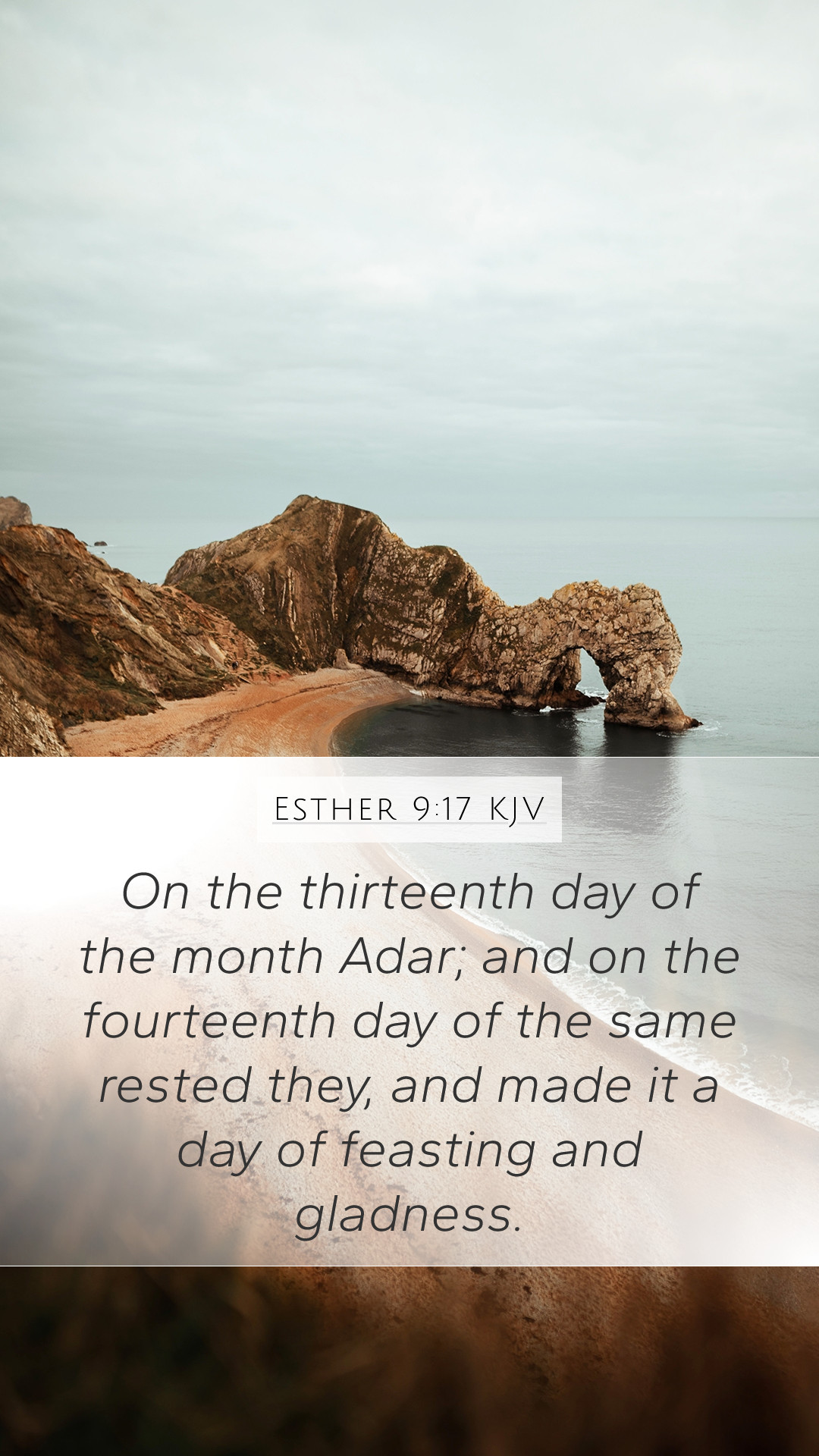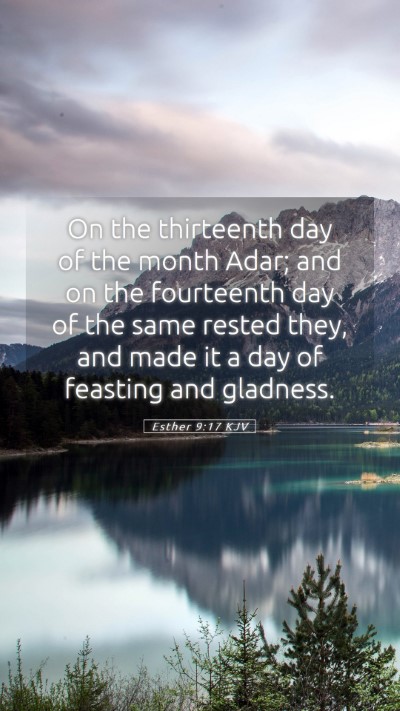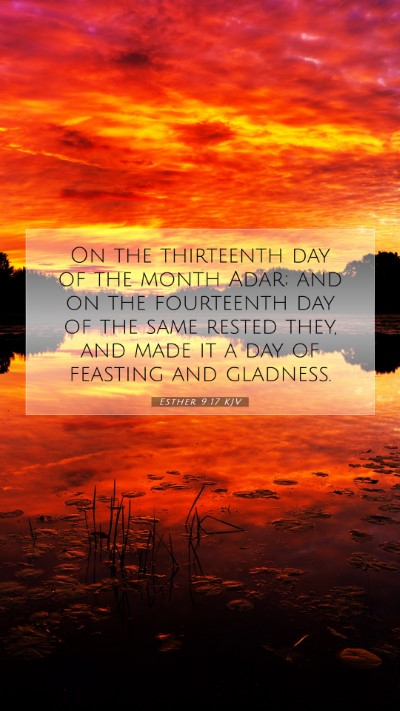Understanding Esther 9:17
In Esther 9:17, we read, "This was on the thirteenth day of the month of Adar, and on the fourteenth day the Jews rested and made it a day of feasting and gladness." This verse relates to the events surrounding the deliverance of the Jews from their enemies, which showcases the divine providence of God and the celebration of their survival.
Bible Verse Meanings
The verse illustrates a pivotal moment in Jewish history, reflecting the themes of salvation, joy, and remembrance. The thirteenth day of Adar was marked by conflict as the enemies of the Jews faced defeat, while the following day represented a time of rest and joyful celebration, emphasizing the importance of gratitude and community among God’s people.
Bible Verse Interpretations
- Matthew Henry's Commentary: Henry points out the significance of the Jews rest on the fourteenth day, which symbolizes not just physical rest but also spiritual renewal as they reflect on God's deliverance.
- Albert Barnes' Notes: Barnes highlights the connotation of feasting as an expression of joy and thankfulness to God, encouraging future generations to remember their deliverance through celebration.
- Adam Clarke's Commentary: Clarke emphasizes the cultural importance of this celebration, linking it to the broader theme of the covenantal relationship between God and His people.
Bible Verse Explanations
Esther 9:17 encapsulates the transformation from mourning to celebration, reflecting the shift in the Jewish experience from darkness to light. This verse serves as a reminder of the power of faith, resilience, and communal identity, encouraging believers in their understanding of God’s faithfulness amid adversity.
Scripture Analysis
In-depth Analysis: The historical context of this verse highlights the struggles of the Jewish people and their eventual victory over their foes. The change from the thirteenth day’s peril to the joyous festivity underscores God’s providential care, a recurring theme throughout the Book of Esther.
Historical Context
The events narrated in Esther 9 occur during a time of great peril for the Jewish people. The decree that allowed for the extermination of Jews was a source of deep distress. However, as the day of reckoning arrived, the Jews turned the tables on their enemies, a testament to their bravery and divine support.
Theological Themes
- Deliverance: God's intervention on behalf of His people.
- Celebration of Faith: The importance of recognizing and honoring God's blessings.
- Covenant Relationship: The ongoing bond between God and the Jews, emphasizing their identity as His chosen people.
Applications in Daily Life
This verse invites modern readers to reflect on the significance of rest and celebration in their lives. Just as the Jews commemorated their survival, people are encouraged to acknowledge their own blessings and the faithfulness of God amid trials.
Cross References
- Esther 3:14: The decree for the destruction of the Jews.
- Esther 9:1: The turn of events where the Jews gain the upper hand against their enemies.
- Psalm 30:5: A verse reflecting joy that comes in the morning following a night of sorrow.
Conclusion
Esther 9:17 holds profound insights into the nature of God’s deliverance and the joy of communal celebration. Combining the wisdom from various commentaries provides a richer understanding of this verse’s implications on faith and practice, encouraging deeper engagement in Bible study groups and individual reflections alike.


